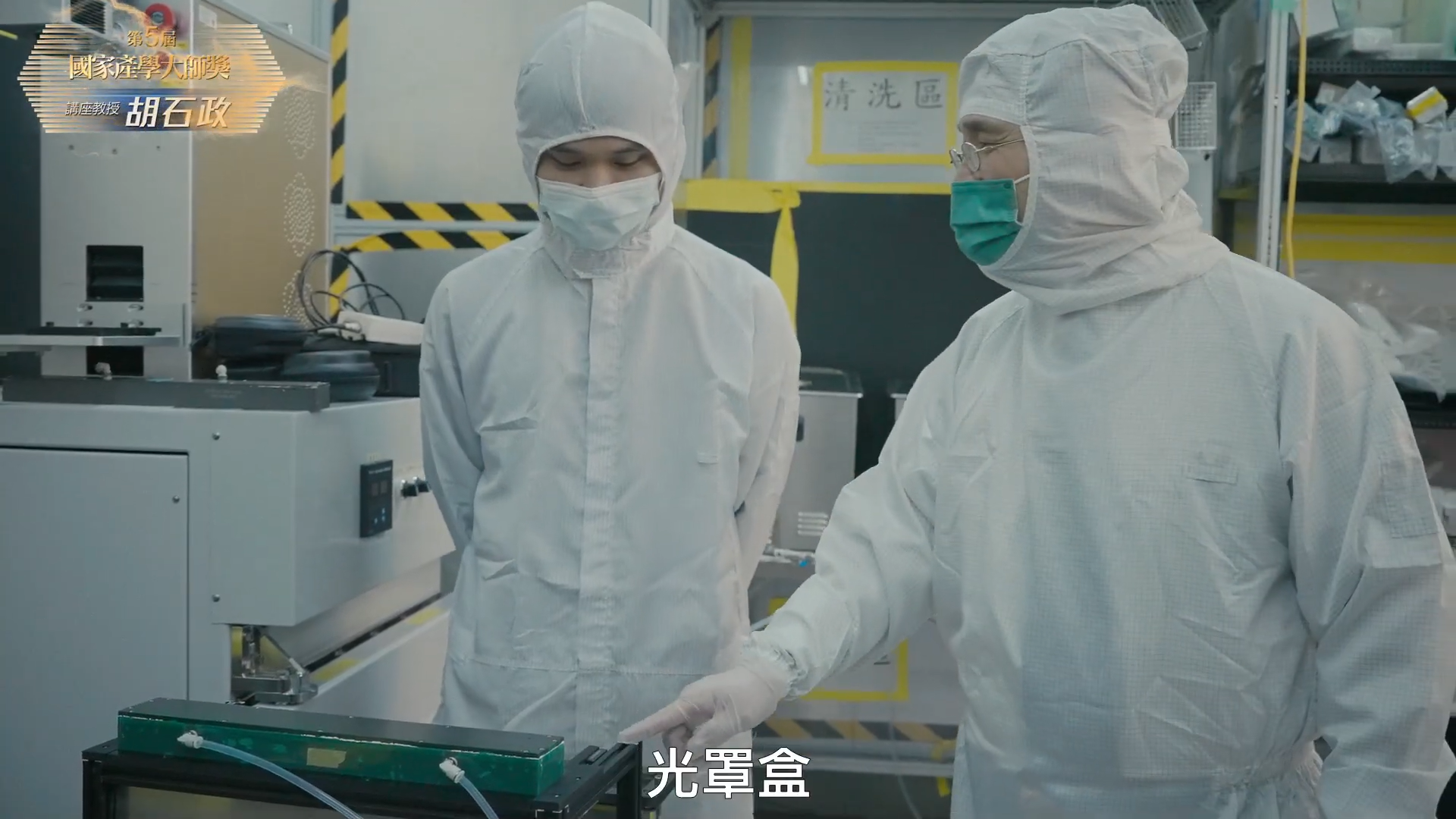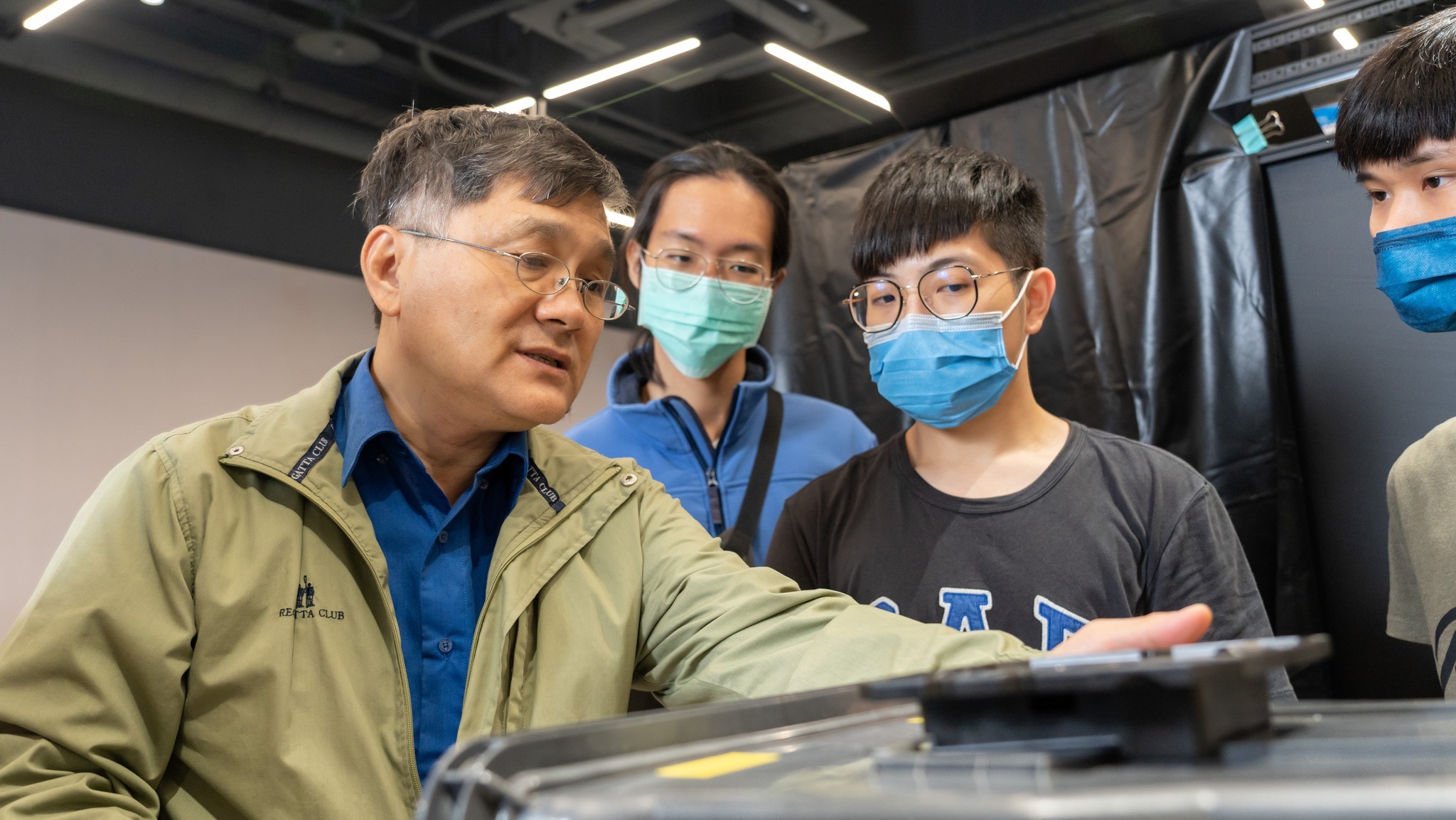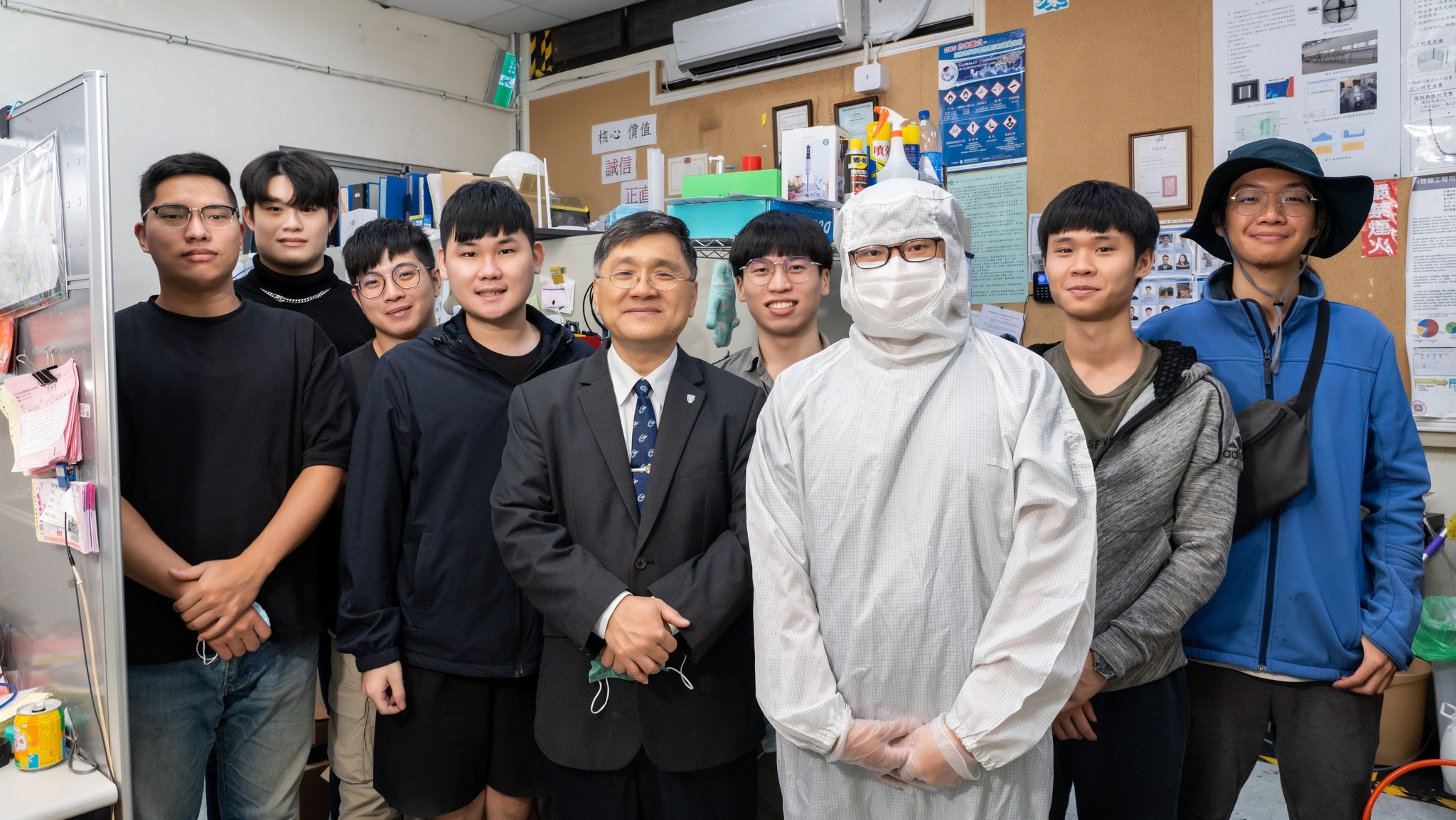2023 Industry Master Award-Shih-Cheng,Hu
The strongest backing for the protection of the country's sacred mountains! There is no room for a grain of sand in the semiconductor manufacturing process. Taipei Tech Chair Professor Shih-cheng, Hu has devoted himself to the research of "clean room and high-tech plant facilities" for more than 30 years, and has established an industry-academia cooperative technology alliance with 30 manufacturers, and has become an authority in controlling pollution in the domestic and overseas wafer manufacturing process, and has made outstanding contributions to enhancing the competitiveness of the domestic semiconductor industry. He has made outstanding contributions to the enhancement of the competitiveness of the domestic semiconductor industry.
Over the past ten years, Shih-Cheng, Hu has brought more than $200 million in revenue from industry-academia collaborations, technology transfers, and patent derivatives to the university. One of the most successful industrial-academic cooperation cases is his solution to control micro-contamination of wafers with TSMC. His patent has improved the shortcomings of traditional wafer carriers, increased product yields, and become the standard equipment for high-end semiconductor processes, which has not only been adopted by Intel and Micron, but has also been promoted to TSMC's new plant in Arizona.
Originally, Taiwan relied on foreign imports for most of its semiconductor equipment, but it was difficult for imported equipment to meet actual process requirements. He leads Taipei Tech's "Clean Technology R&D Center" and the "Semiconductor Plant and Process Equipment R&D Center" at the Foresight Technology Headquarters, which have continuously advanced their R&D and introduced new technologies in the field of clean control, making their technologies unique in the world. They have assisted Taiwan's local manufacturers to tailor to the needs of the local market and have the ability to provide their equipment and services close to their location, making them a model for technology transfer through industry-academia cooperation and opening up new business models for manufacturers.
Shih-Cheng, Hu is also a member of the American Society of Refrigeration and Air Conditioning Engineers (ASHRAE) and the primary author of the ASHRAE Cleanroom Design Manual, which was published in 2017 and has been updated annually since then, and has become the international "bible" of the field. He has studied fluid mechanics to its fullest extent, but his relationship with fluid mechanics was a "misadventure".
Forty-five years ago, 15-year-old Shih-Cheng, Hu traveled north from Taichung with his father to register for distribution at Taipei Technical College (the predecessor of Taipei Tech). "The school's brochure started with the subject of mechanical engineering, which I registered as my first choice. Fluid mechanics is a required course for mechanical engineering majors, such as studying how fans move air, and then using very precise instruments to measure microscopic fluid parameters.
The more he studied, the more interested he became. He went to Auburn University in the United States to obtain a master's degree in mechanical engineering and returned to Taiwan to work as a researcher at the Industrial Technology Research Institute (ITRI). When the semiconductor industry took off in the 1990s, TSMC's first production line was set up in ITRI, and he began to work in clean room design and semiconductor process services. Six years later, he went to the University of Liverpool in the United Kingdom to study for his doctorate, and in 1998, he returned to his alma mater as a faculty member in the Department of Energy and Refrigeration and Air Conditioning Engineering.
Shih-Cheng, Hu humbly claimed that it was only after he was promoted to professor more than ten years ago that he gradually saw the full picture of his research, "Engineering should help the people in the world, so why don't we bring the idea of research to the market? Therefore, he has invested in patent development, R&D and service for enterprises, and tried to find a way out of the sea for his research, and has been honored with the Taipei Tech Special Outstanding Research Talent Award for 13 consecutive years.
He is an outspoken person who is not afraid of payoffs, but he admits that he has suffered losses. Once, a 500 largest company in the U.S. found a lawyer to talk to him, trying to circumvent his patent and commercialize it on its own; now he has learned to consolidate his patent, "The patent is clearly written, and there are many articles published, so as long as you are in the field of related equipment, you will surely find my name.
Yang-Cheng, Shih, a professor in the Department of Energy at Taipei Tech, who played basketball together at ITRI when they were young and have known each other for more than 30 years, observes, "Successful industry-academia collaboration requires the experience of time. From ITRI, Shih-Cheng, Hu has been focusing on the field of clean room and semiconductors for more than 30 years. On one hand, he is very diligent in running the park to understand the needs of manufacturers, and on the other hand, his cultivation in his professional field attracts excellent students who are willing to learn from him and form strong R&D teams, which is not an overnight success.
Outside the university, Shih-Cheng, Hu has been organizing short-term training courses on cleanroom technology for more than 10 years, training more than 2,500 students. On campus, he has supervised more than 140 master's and doctoral students, and hundreds of students have entered the high-tech industry as factory engineers. In recent years, he has also cooperated with Shibaura Institute of Technology of Japan in the Cherry Blossom Science and Technology Program, which has recommended 10 graduate students from each other to cross-sea training exchanges and has enhanced the students' international perspectives and foreign language skills.
Under the global ESG trend, Shih-Cheng, Hu is developing renewable chemical filters that can be recycled more than a hundred times and still have the same performance, which is a revolutionary product that significantly reduces waste, lowers carbon emissions, and is friendly to the environment; meanwhile, it is hoped that the patented technology of visualizing the large area of particles and airflow can be applied to a greater extent. Long-term and in-depth industry-academia cooperation with the science and technology industry will establish global competitiveness for key industries, which is an example of "Applying what we have learned to benefit the people".




Chinese Source:https://money.udn.com/money/story/5723/7103584
Youtube Link:https://www.youtube.com/watch?v=rMInRH3Ij3w
